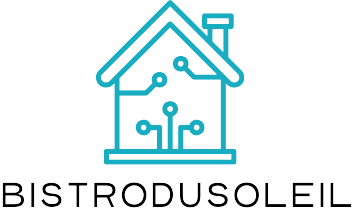Table of Contents
ToggleNavigating the world of home loans can feel like trying to solve a Rubik’s Cube blindfolded. But fear not—FHA loans are here to save the day! Designed to help first-time homebuyers and those with less-than-stellar credit scores, these loans offer a lifeline to homeownership. With lower down payment requirements and more flexible eligibility criteria, they’re the superhero of the mortgage universe.
Overview of FHA Loans
FHA loans, backed by the Federal Housing Administration, serve as a viable path toward homeownership for many individuals. These loans cater to first-time homebuyers and those with less-than-perfect credit profiles. Lower down payment requirements, often as low as 3.5%, make them accessible for individuals who might struggle with higher conventional loan standards.
Flexible eligibility criteria distinguish FHA loans from other options. A credit score of 580 qualifies buyers for the minimum down payment, while scores between 500 and 579 require a 10% down payment. These thresholds represent opportunities for individuals aiming to achieve homeownership despite financial challenges.
Debt-to-income ratios play a critical role in FHA loan eligibility. Generally, a debt-to-income ratio of 31% for housing expenses and 43% for total debt is acceptable. These limits allow borrowers room to manage their financial obligations effectively.
Loan limits vary by county, accommodating different housing markets. Maximum loan amounts range from $331,760 to over $1 million in high-cost areas. Updating these limits annually ensures they remain relevant to current market conditions.
Mortgage insurance premiums add another layer to investment considerations. FHA loans require both an upfront premium and ongoing monthly premiums, affecting total loan costs. Despite this, the favorable terms often outweigh the additional costs for eligible borrowers.
FHA loans, with their unique benefits, represent an attractive option for many navigating the home-buying process. By addressing financial barriers, they enable individuals to transition into homeownership more seamlessly.
FHA Loan Eligibility Requirements
FHA loans offer accessible pathways toward homeownership through specific eligibility criteria. Understanding these requirements is vital for potential borrowers.
Credit Score Standards
Credit scores play a significant role in FHA loan eligibility. A minimum score of 580 qualifies buyers for a down payment of just 3.5%. Those with scores ranging from 500 to 579 need to provide a higher down payment of 10%. Maintaining or improving a credit score prior to applying can significantly enhance loan prospects. Lenders assess credit history as well, so establishing consistent payment habits helps strengthen applications. FHA loans cater to a broader audience, making them suitable for individuals with diverse financial backgrounds.
Debt-to-Income Ratio
Debt-to-income ratios determine an applicant’s financial health. FHA guidelines typically allow a maximum housing expense ratio of 31% and a total debt ratio of 43%. These percentages represent the proportion of an individual’s income allocated to housing costs and overall debt obligations. Lower ratios indicate better financial stability and can improve loan approval chances. Calculating monthly obligations helps prospective borrowers understand their standing. Keeping debt levels manageable often supports a positive evaluation during the underwriting process.
Employment History
Employment history influences FHA loan eligibility. Lenders prefer a stable work record, generally requiring at least two years of consistent employment. This adherence demonstrates reliability and financial stability. Self-employed individuals must provide additional documentation, highlighting their business performance. Significant gaps in employment may raise concerns, though providing context and proof of ongoing income can mitigate issues. Consistency in job roles and income levels builds confidence with lenders, potentially enhancing approval opportunities.
Property Requirements
FHA loans come with specific property requirements aimed at ensuring safe and secure housing. Understanding these criteria helps potential buyers identify suitable properties.
Primary Residences
FHA loans apply exclusively to primary residences. This means the borrower must occupy the home as their main living space within 60 days of closing. Investors looking to purchase rental properties or vacation homes do not qualify. Properties must be intended for year-round occupancy. Additionally, seller concessions are permitted, including closing costs up to 6% of the purchase price. This feature makes FHA loans appealing, as it assists buyers during the initial phases of homeownership.
Acceptable Property Types
FHA loans allow several property types, promoting diverse homeownership opportunities. Single-family homes stand out as the most common option. Townhouses and condominiums also qualify, provided they meet FHA’s specific guidelines. Multifamily properties with up to four units are permissible if the borrower occupies one unit. Manufactured homes can also qualify, assuming they meet designated requirements. FHA requirements help borrowers understand which property types align with their financing options.
Benefits of FHA Loans
FHA loans provide several advantages for homebuyers, particularly first-time buyers and those with lower credit scores. Lower down payment requirements make these loans accessible, allowing individuals to secure a mortgage with as little as 3.5% down. Flexible eligibility criteria enhance the appeal of FHA loans, permitting those with credit scores as low as 580 to qualify for favorable terms.
Reduced mortgage insurance costs contribute to overall affordability. While mortgage insurance premiums are mandatory, the rates for FHA loans often come in lower than those for conventional loans. This aspect enables borrowers to manage monthly payments more effectively, further easing financial strain.
A significant benefit encompasses higher debt-to-income ratio limits. FHA guidelines allow ratios of up to 31% for housing expenses and 43% for total debt, accommodating various financial situations. This flexibility ensures that borrowers can still manage expenses while securing the financing they require.
Additionally, FHA loans cater to a variety of property types, including single-family homes, townhouses, and certain condominiums. Buyers can consider multifamily properties too, as long as they occupy one unit. Such versatility helps expand options for potential homeowners seeking properties aligned with their needs.
Another notable benefit involves the ability to receive seller concessions. FHA loans allow sellers to cover up to 6% of the purchase price in closing costs. This feature assists buyers in minimizing initial out-of-pocket expenses, making homeownership more attainable.
Overall, the combination of low down payments, flexible credit assessments, and manageable expense ratios makes FHA loans an attractive option for many individuals looking to achieve homeownership.
FHA loans provide a pathway to homeownership for many who might otherwise struggle to secure financing. Their flexible eligibility criteria and low down payment options make them particularly appealing to first-time buyers and those with credit challenges. Understanding the details of FHA loans can empower potential borrowers to make informed decisions. By meeting the necessary requirements and leveraging the benefits offered, individuals can navigate the home-buying process with greater confidence. FHA loans stand as a viable solution in today’s housing market, helping to turn the dream of owning a home into a reality for many.




